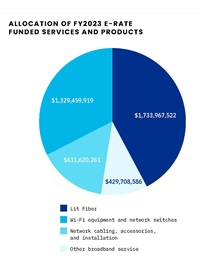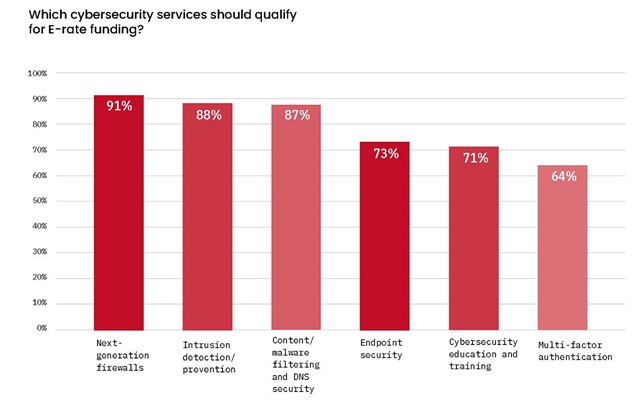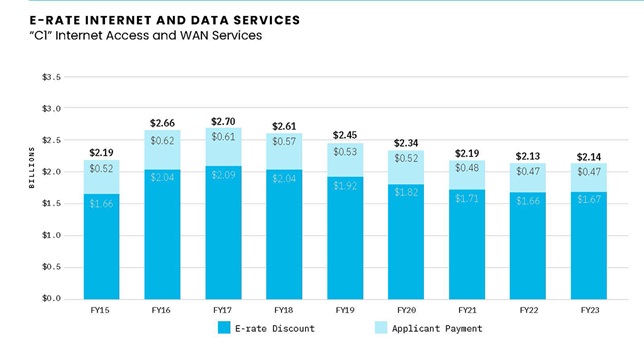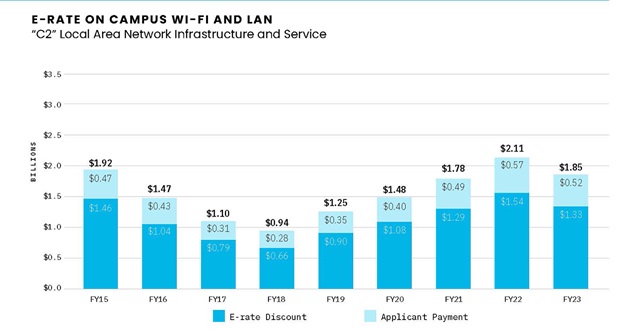Annual E-rate Survey Shows Majority of Schools, Libraries Want Cybersecurity Services Added
- By Kristal Kuykendall
- 10/10/23
An overwhelming majority of E-rate applicants want the FCC to include cybersecurity services in the program, according to the 14th annual E-rate Trends Report released today by Funds For Learning.
The annual research is designed to understand how the E-rate program can best serve schools and libraries, and FFL compiles respondents’ input and delivers it to the Federal Communications Commission to inform program administration.
FFL said 2,110 E-rate applicants participated in this year’s survey, equivalent to about 10% of all E-rate participants, the organization said.
 Key findings from the 2023 report include:
Key findings from the 2023 report include:
1) E-rate Success: Respondents largely felt that the E-rate program “is essential in providing reliable and secure internet connectivity for schools and libraries.”
- 88% of respondents agreed that “their education sites have faster Internet connections due to the E-rate program”
- 86% of educators “feel that their students and library patrons are more connected to the internet than ever”
2) The Need for Cybersecurity: The survey results reveal a “strong consensus among respondents for including cybersecurity services in the program,” FFL said.
- 93% of respondents agreed “that the E-rate program should provide support for comprehensive network security solutions,” the report said.

3) Equitable Access and the Learning Gap: Access to the internet remains a concern for students and library patrons, the survey showed.
- 90% of respondents said “insufficient internet access in the homes of students or library patrons is a significant issue in their communities.”


FFL’s report emphasized the need for continued investments in ensuring equitable access to the internet, particularly for students’ off-campus use.
"This year's Trends Report highlights the remarkable progress made towards connecting schools and libraries; however, it also emphasizes that our work is far from over," said Brian Stephens, Director of Stakeholder Engagement of Funds For Learning. "E-rate applicants indicate the need for a proactive approach to safeguarding our students and library patrons. By addressing these challenges head-on, we can pave the way for an even brighter future for education."
The E-rate program provides cost-savings for internet access and networking equipment for nearly every school and library in America, with more than 21,300 applicants and 3,800 vendors participating in the program, FFL said.
Learn more at FundsForLearning.com or download the full E-rate Trends Report at FundsForLearning.com/e-rate-data/trendsreport/.
About the Author
Kristal Kuykendall is editor, 1105 Media Education Group. She can
be reached at [email protected].